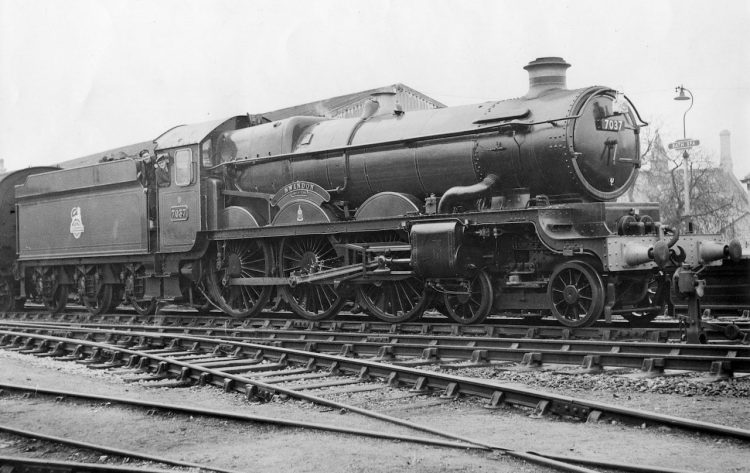The Friends of Swindon Railway Museum has closed their appeal to fund a headstone for Charles Collett after discovering that he did not want one. The Friends are now returning donations to donors.
Collett was the Chief Mechanical Engineer of the Great Western Railway between 1922 and 1941. He designed the popular 4-6-0 Castle and King Class express passenger locomotives.

He began his railway career in 1893 at the GWR Drawing Office at Swindon, Wiltshire, as a junior draughtsman.
Five years later, he became assistant to the Chief Draughtsman. In 1900, he was appointed Technical Inspector, and then Assistant Manager, at the Swindon Works, and in 1912 became Manager of the Works. In 1919, Collett was appointed GWR’s Deputy Chief Mechanical Engineer.

As the Friends investigated Collett’s life story and read through the archives, they found a dictated, handwritten note dated 1941 in which Charles states that there is no need for a headstone to be erected upon his death. Realising that continuing their appeal would go against his expressed wishes, they decided to close the appeal.
The Friends of Swindon Railway Museum issued a statement explaining their decision and saying that, “What is clear is the rail enthusiast community are a generous and passionate body of folk always ready to support a project increasing our understanding of our railway heritage. The Friends of Swindon Railway Museum would like to thank each and every donor to the fund and trust that they will understand our decision to discontinue the initiative.
“Our final message to all readers is that it is our wish that Charles Collett rests in peace!”
The Friends have described their decision as not one they took lightly, and “a great disappointment bearing in mind we were tantalisingly close to achieving the target sum.”






Responses
I agree absolutely with the sentiments and reasoning of Roger Bates. The letter was intended for his family. He was surely unaware of the respect that future generations would have for him.
Just because Collett said “there is no need for a headstone to be erected upon his death” does not mean he would not have appreciated one or did not want one. It merely means his family did not need to go to the expense of having one erected. Who knows by the time of his death perhaps his family were having hard times so far as money is concerned. I think with respect, not going ahead with some form of memorial is a mistake and a shame.
Regards
Roger Bates